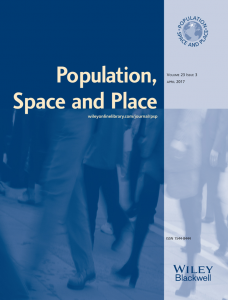Social Media: Documentation as Stratification
The new norms of exhibitionism and copious self-documentation have been regular talking points on Sociology Lens over the past year. Consider Nathan Jurgenson’s posts, our digital culture of narcissism and facebook, youtube, twitter: mass exhibitionism online, as well as my own recent post, The Queer Politics of Chatroulette. It now seems truer than ever for many social media users (particularly, teenagers and young adults) that “If you’re not on MySpace [and/or other social media sites], you don’t exist.” Moreover, the...





1540-6237/asset/SSSA_Logo-RGB.jpg?v=1&s=c337bd297fd542da89c4e342754f2e91c5d6302e)
1756-2589/asset/NCFR_RGB_small_file.jpg?v=1&s=0570a4c814cd63cfaec3c1e57a93f3eed5886c15)